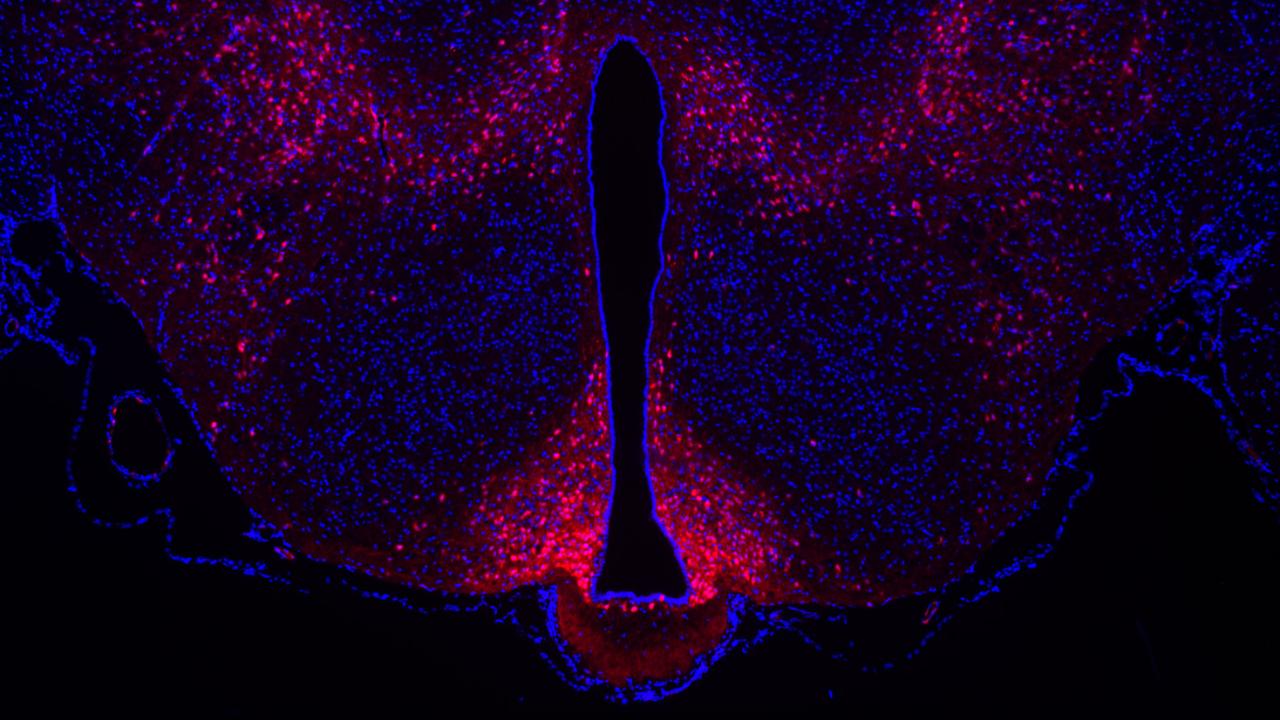Research
Understanding the Regulation of Energy Balance and Glucose Homeostasis, and the Etiology of Obesity and Type 2 Diabetes
Our research focuses on elucidating the function of the central melanocortin system in adaptive regulation of food intake, energy expenditure, and hepatic lipid metabolism in response to physiological and environmental conditions, such as food restriction, consumption of energy-dense diets and aging.
We have elucidated signaling mechanisms by which Proopiomelanocortin and Agouti-related protein-expressing neurons integrate diverse metabolic signals, such as leptin, insulin and glucocorticoids, and how disruption of these signaling mechanisms contributes to the development of metabolic disorders. In addition, we have identified a critical role for hypothalamic Agouti-related protein in regulation of hepatic lipid and cholesterol metabolism, as well as dietary preference in mice and humans. We also delineated mechanisms underlying hypothalamic neuronal repair, neurodegeneration and metabolic impairment in aging. Our recent endeavor is to elucidate novel mechanisms by which the brain senses metabolic and nutritional signals and to identify downstream effectors of the central melanocortinergic neurons. Together, these research efforts will help better understand how energy balance are regulated normally and how these regulations are disrupted in obesity, diabetes and aging.


